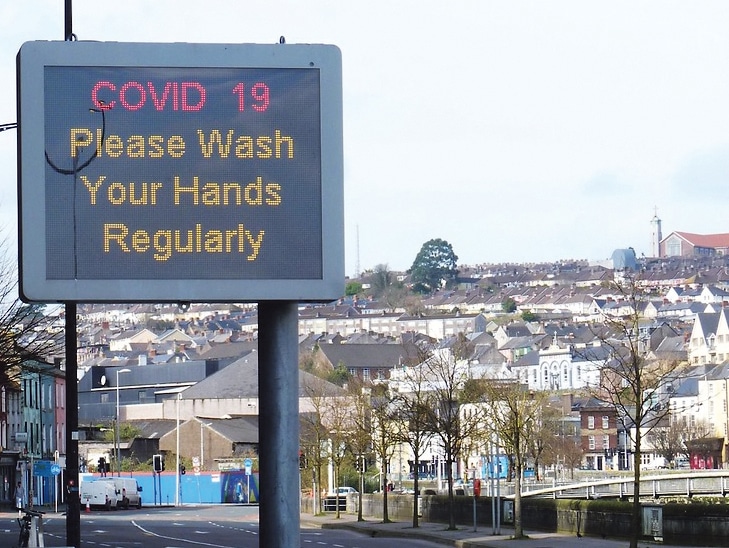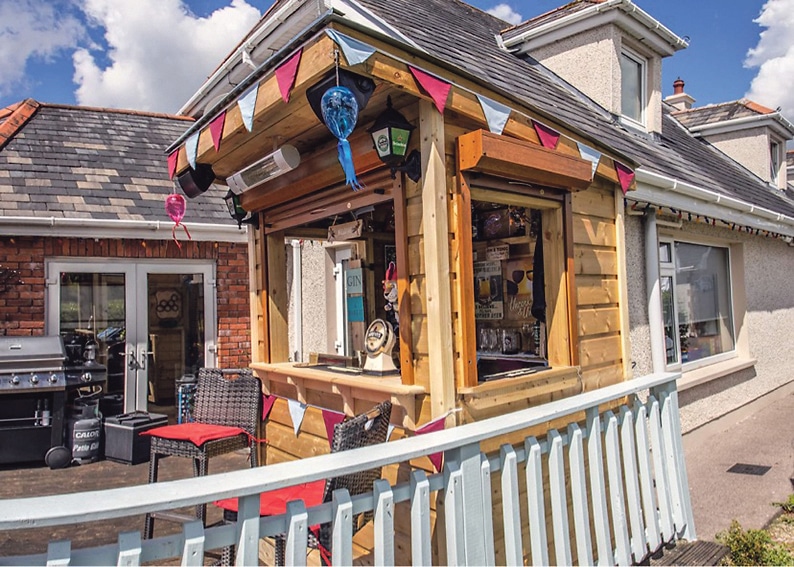
Just a few months on from lockdown, questionnaire entries submitted in April and early May 2020 to the Cork Folklore Project’s online ‘Chronicles of COVID-19’ project, reflect a different world.
On April 7, Cork Folklore Project launched a call for people to send in audio, text and images, or to fill in the online questionnaire, in order to create a record of what life was like for people in Ireland during the pandemic. Since then, the community-based folklore and oral history archive has received over fifty audio recordings, hundreds of images and over a hundred questionnaire entries detailing people’s everyday lives and routines, preoccupations, challenges, joys and reflection on what the crisis means to us.
Clíona O’Carroll, Research Director with the CFP updates us on the work and issues an invitation to all those interested to get involved.
“When the crisis hit, we had to ask ourselves if this kind of a project was worth carrying out at a time when everyone, including ourselves, was in a situation of uncertainty and under stress. One thing that this kind of ‘in the moment’ documentation of the everyday can do is to record the thoughts, feelings and observations that we might forget in retrospect. It also provides space for experiences, details and viewpoints that aren’t reflected in the mainstream media.”
She explains how one relevant question is: ‘What does this project do that isn’t already happening on social media, with people sharing stories and images?’ “Although social media was awash with personal accounts, we were aware that this material isn’t likely to be available to ourselves in another decade, let alone to future generations, and that the information that CFP gathers as an archive on the context of what we collect will become more and more valuable as time goes on,” says Clíona.
It was Cork Folklore Project’s first time using online – or indeed any kind of written – questionnaires in its work. “I have to admit that I had always viewed written questionnaires as a very poor relation of the face-to-face interview, wondering how they could approach anything like the same richness, and even whether they were worthwhile at all. Now I have occasion to eat my words. The detail, the thoughtfulness, the surprises, the hope, the sadness, the view into other people’s lives – for example, what it’s like to live your life as ‘extremely medically vulnerable’ in the early days of COVID-19 – and the humour: all of this richness contained in the contributions has made me realise how the use of questionnaires can be very worthwhile, particularly in these kinds of circumstances.” You can sample some of the material that people contributed in a previous West Cork People article by going to the westcorkpeople.ie website and searching under the ‘Coronavirus’ section.
People of all ages and from many walks of life contributed to the project, but Cork Folklore Project is very aware that there were many who might have been interested who didn’t have the time or the access to participate at the time. “We’re very aware that those in healthcare or service industries, carers, those without good internet access or computer literacy, and many others heavily affected by the situation, would not have had the same chance to put their experiences ‘on the record’,” says Clíona. Cork Folklore Project is inviting everyone reading this to consider taking part in the project, to visit the project webpage or to access the Irish-language questionnaire on corkfolklore.org. You can fill out the questionnaire, or send in material, in order to add your thoughts, photos, stories and reflection to this ‘people’s archive’.
The material collected so far has been archived, and it will be available as a community and research resource from now on. Cork Folklore Project has received a grant from UCC’s College of Arts, Celtic Studies and Social Sciences’ Emergency Strategic Funding Scheme to share the material already gathered in the project. Cork Folklore Project is eager to find out more about life now that the newness of the situation has faded but also to follow up on major themes that emerged from this phase. For example, many people commented that the pandemic reminded them strongly of past epidemics and crises: remembered either from personal experience, such as the polio epidemic in Cork city in 1956, or through family stories, such as those about the 1918 Spanish ‘Flu pandemic.
If you have stories, memories, reflection or description of life now or in the past that you would like to share, or are happy to facilitate someone you know who would like to contribute, please do get in contact.
For more information go to corkfolklore.org.


